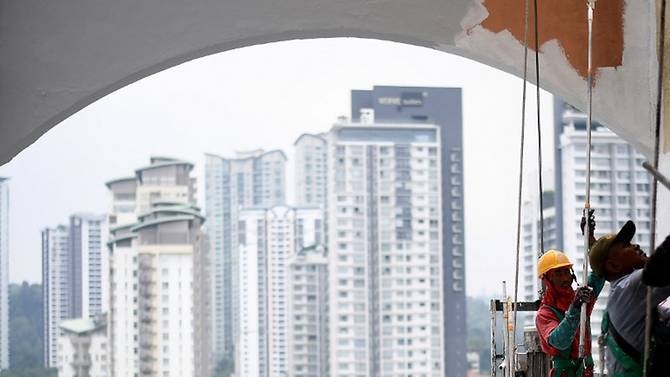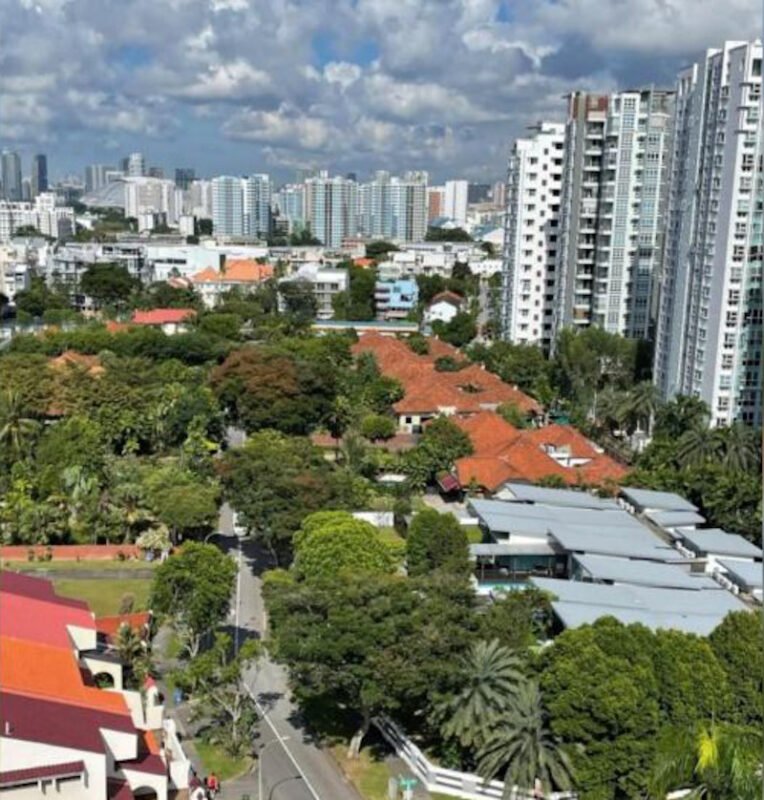
Unfazed by fresh waves of illnesses during the COVID-19 epidemic, homegrown property service companies are going abroad in search of new development in the area.
According to the companies, the move would offer Singapore purchasers better access to foreign homes and superior technology.
PropertyGuru, a local property technology – or proptech – business, has agreed to buy all of REA Group’s operating companies in Malaysia and Thailand, marking the company’s biggest purchase in its 14-year existence.
The move represents a step up in the company’s operations in these areas, which it first entered years ago. PropertyGuru also owns holdings in Vietnam and Indonesia at the moment.
Why they continue to expand?
Gaining fresh ground in foreign territories is essential for the companies to accomplish their goals of becoming regional players, according to the firms, who added that ASEAN nations are hotbeds of potential and activity.
Malaysians were the second-largest group of foreign purchasers of local homes even during the epidemic, according to PropNex CEO Ismail Gafoor, while many high-net-worth people from Indonesia “always want to have a footprint” in Singapore. Vietnam, he said, has a growing economy and a big, youthful population.
By establishing a presence in Cambodia, the brand now has a presence in five ASEAN nations with a combined population of more than 420 million people.
“With our 5 million people, we don’t want to be limited to Singapore; we want to have a regional presence… Mr Ismail said, “We are not restricted to ASEAN, but it is our starting point.”
“Over the past three years, condominium property prices in Manila have risen. Ms Rhonda Wong, co-founder and CEO of the company, stated, “We’re witnessing 12.4% growth each year, and the quantity of transactions has also been quite high.”
Furthermore, since the original costs of developing the platform’s technology have already been paid, she claims that each growth becomes less expensive.
“It’s actually grown with each nation we (enter) by duplicating most of the features and then having certain features that are localized to fit the market.”
It will, for example, control iProperty Malaysia, Malaysia’s biggest property data portal, with which it has long competed, according to Mr Hari.
The company will also operate Thai sites dedicated to new property projects, as well as resales and rentals.
“It enables us to concentrate our investments as a single group… We’re able to concentrate much more on the consumer – generating the greatest value for the real estate sector – by putting these businesses together in Malaysia and Thailand.”
Where does Covid-19 Pandemic fit in?
The push into additional international markets comes while the COVID-19 epidemic drags on and the global economy remains shaky.
Mr Hari admitted that the epidemic has posed many difficulties to the real estate industry, adding that “if you go beyond Singapore, it just becomes worse.”
Businesses that have recovered from previous crises, he added, credit their success to smart investment and “doing the right thing at a difficult moment.”
When the epidemic hit, the business was “financially, in pretty excellent shape,” according to Mr Hari. According to him, the epidemic provided them greater confidence to grow.
“In comparison to pre-pandemic, there has been a paradigm change in individuals embracing and adopting technology, virtual training – and a lot more IT platforms are being utilized in the real estate industry.
“As a result, we’ve gained a lot of confidence… Even more so, the epidemic has necessitated the use of a robust IT platform… And PropNex has that structure and procedure in place to help them grow,” he said.
Benefits to local Singaporean?
Local purchasers will benefit from these developments as well, according to the companies, primarily by having better access to international homes.
“Proptech portals could allow (Singaporean buyers) to search and view overseas properties,” said Professor Sing Tien Foo, Director of the Institute of Real Estate and Urban Studies. “If they prefer to deal with a real estate brokerage, brokerage services like PropNex’s overseas office will be relevant.”
However, companies must guarantee that their foreign subsidiaries maintain their service reputations and assist to “avoid information asymmetry issues,” particularly by weeding out “lower quality investments,” according to Prof Sing.
In the same spirit, he said, local property owners may profit from increased interest from international purchasers.
“The abroad presence may also be utilized to reach out to prospective investors in the foreign market who are interested in investing in Singapore’s housing markets,” says the company. Prof Sing believes that the overseas route may circumvent travel restrictions established during the epidemic.
Another advantage is that companies may test new technology in foreign markets before bringing it back to Singapore.
For example, PropertyGuru’s Mr Hari said that the company “performed a lot of optimisation” in Malaysia in 2018 before introducing it to Singapore last year.
According to him, the Singapore version of the platform includes immersive content features that were developed after testing with Thai consumers.
READ: In the midst of the flu epidemic, buyers are looking for bigger houses.
Ms. Wong of Ohmyhome agreed that international collaborations may make technology “more robust and comprehensive.”
She added the company is experimenting with other kinds of property data in other countries, including crime rates, natural disaster occurrences, and weather maps, among other things.
According to Ms Wong, they’re also collaborating with provincial banks to assist areas with “very limited access to finance” obtain mortgages.
Furthermore, according to PropertyGuru’s Mr Hari, foreign expansions may fuel growth for the motherships, resulting in additional employment, including in Singapore.
Mr Ismail of PropNex said that as a publicly traded business, Singaporean shareholders would profit if the company’s foreign operations performed successfully.
Meanwhile, the companies are pursuing different goals. Thailand, the Philippines, and Myanmar are three additional nations on PropNex’s radar, according to Mr Ismail.
“We have met with several prospective partners, but we are still in the early stages of the process; nothing has been finalized yet. Because finding the right team, the appropriate partner with the right ideals and the right drive to develop will take time.”
Ohmyhome’s Ms Wong said that the company’s top goal is to expand in its existing areas while also expanding its property management services. For example, as part of its portfolio of services, it recently included remodeling and interior design.
But she isn’t ruling out the possibility of expanding into new territory: “If being helpful to our consumers means being in another nation… that’s something we’ll certainly consider.”
Mr Hari, CEO of PropertyGuru, said that the company’s overarching goal is to provide access to sophisticated real estate data that will benefit not just consumers and brokers, but also property developers, banks, and appraisers.
The creation of a single data collection will help improve the sector’s openness and confidence. “We are an advanced economy in many respects, but when it comes to proptech, we are not an advanced economy. Mr Hari said, “I believe PropertyGuru wants to bring us there.”



